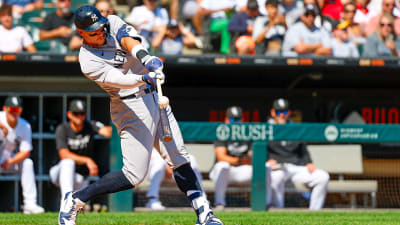
Stephen Bunting has offered a no-nonsense reminder to aspiring darts players: without reliable finishing, the rest of your game is irrelevant.
The former Lakeside world champion, speaking on his official YouTube channel, explained that amateurs and professionals alike should devote far more time to practising doubles – not just heavy scoring.
“For amateurs just starting out, I’ll say this straight away – doubles are the most important part of any game. If you can’t hit your double, it’s absolutely pointless scoring as big as you can to get down to the double, only to miss it,” Bunting said.
The 39-year-old, who has enjoyed a resurgence on the PDC circuit in 2024 and 2025, stressed that the key is repetition and structure in practice. “Throw as many darts at doubles as possible. The more you do, the better you’ll be. You can even write it down on a piece of paper – how many you hit – and then try to improve on that number over time. You’ll find your accuracy slowly increases.”
Practice like a pro
Bunting revealed his own daily routine, focused almost entirely on the doubles he most trusts under pressure.
“My favourite doubles are tops and double 16. At the start of any practice session, whether I’m at home or at a venue, I’ll throw 15 darts at double 16 and 15 darts at tops, then see how many I hit. If I’m not happy with the number, I’ll repeat the process. And remember – the bullseye is a double too, so I’ll throw 15 darts at that as well.”
The St Helens thrower admitted that the opening dart in any visit is crucial to setting up a successful finish, warning that blockers and awkward angles can quickly complicate a leg.
“The first dart is really important to me. If it lands awkwardly and blocks the bed, you’ve got to adjust – sometimes throw a bit harder or work around it. You don’t want to go inside, because then you’ve got to switch, and that becomes harder when you’re moving across the board.”
50% the magic number
With doubles increasingly scrutinised on televised PDC events – checkout percentages, missed darts at double, and even “treble-less visits” are all now highlighted in coverage – Bunting set clear standards for both professionals and amateurs.
“I think if you can hit half your doubles, 50%, that’s a good standard. Obviously, you see on the telly now it’s so focused – how many darts you hit on a double, how many you miss. For someone just starting, if you can hit one in 15, that’s good going. Then keep trying to improve. The more you throw at it, the better you’ll be.”
Round the board – a killer drill
Among his recommended routines is the classic “round the board” challenge, which involves hitting every double in sequence from 1 to 20, finishing on the bull.
“For pros, the aim is to do it in as few darts as possible. For beginners, just keep throwing until you hit it, then move on. You can also play different versions – if you miss one, you go back a number. It’s a great way to practise.”
Even for Bunting, the exercise was a reminder of the fine margins involved. “You saw when I tried it – rushing makes you out of breath, you start to miss, and that shows how important it is to keep calm. A big tip is taking your time. Deep breath before you throw, then go for it. So much easier than being out of breath and flustered.”
Controlling the pace
Bunting also warned that players should not allow their opponents’ rhythm to disrupt their own routine. “You’ll play some games where the opponent is really fast – Ricky Evans, for instance – and you can feel rushed. Or others who are very slow, and that can put negative thoughts in your head. Stick to your own rhythm. Grab a sip of water, take a breath, and throw on your terms. It’s all about not rushing.”
For Bunting, the message could not be clearer: practise doubles relentlessly, track your progress, and focus on staying calm when the pressure rises.
“If you can’t hit a double, it doesn’t matter how big you score,” he concluded.
More must-reads:
- Cubs losing four-time All-Star to injury isn't as bad as it seems
- Blue Jays place star shortstop on IL
- The 'Two passing and rushing touchdowns NFL games' quiz
Breaking News
Trending News
Customize Your Newsletter
 +
+
Get the latest news and rumors, customized to your favorite sports and teams. Emailed daily. Always free!








